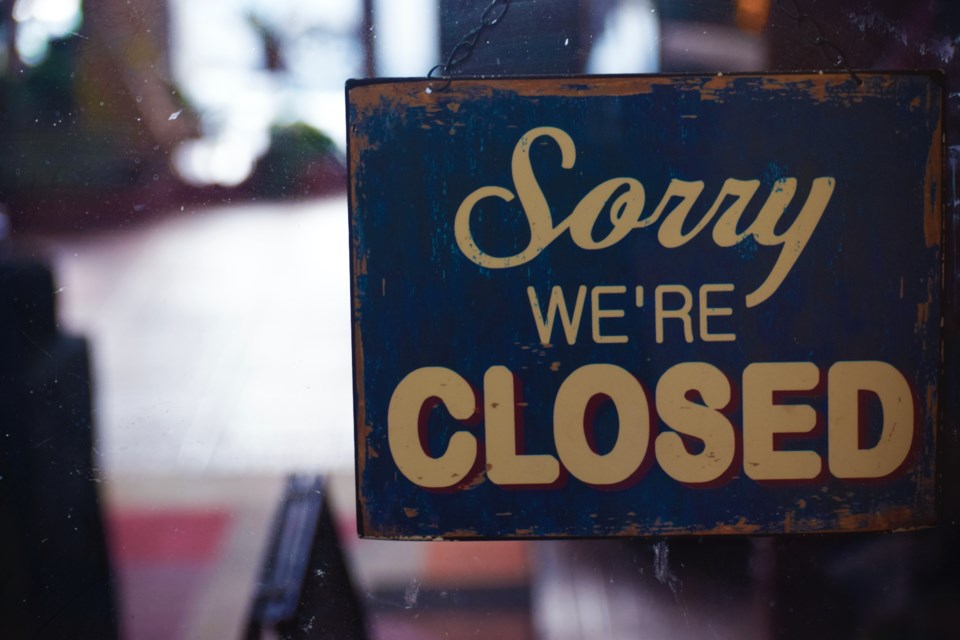Welcome back to Step 2 of Ontario's Roadmap to Reopen.
Effective today (Jan. 5), the province is in a modified version of the Roadmap to Reopen for at least 21 days (until Jan. 26).
It's been a while since the roadmap was a factor. It's the three-step plan to ease public health restrictions introduced back in May 2021 when the third wave of the pandemic was being driven by the delta variant. It replaced the colour-coded framework.
The current wave is being driven by the highly contagious omicron variant. Premier Doug Ford said earlier this week that the province is facing a "tsunami" of new cases. He said there's an alarming number of new hospital admissions and one per cent of people who get the omicron variant will end up in hospital.
Here's a look at the new restrictions and the situation in Ontario today:
Schools and childcare
- There is virtual learning until at least Jan. 17.
- Schools can open for childcare operations, for in-person schooling for students with special needs who can't be accommodated remotely, and for staff unable to deliver quality instruction from home.
- Free emergency child care is being provided for eligible frontline workers
Going Out
- Social gatherings are limited to five people indoors and 10 people outdoors.
- Organized public events are limited to five people indoors.
- Indoor dining is closed. Outdoor dining is allowed with restrictions. Takeout, drive-thru and delivery are allowed.
- People must work remotely unless their work requires them to be on-site.
- Gyms are closed, except for athletes training for the Olympics and Paralympics and select professional and elite amateur sport leagues. Outdoor facilities can open, spectators are limited to 50 per cent capacity.
- Capacity at indoor weddings, funerals, and religious services, rites and ceremonies is limited to 50 per cent capacity of the particular room. Outdoor services are limited to the number of people that can maintain physical distancing. Social gatherings associated with these services must adhere to the social gathering limits.
- Malls are open at 50 per cent capacity, food court seating areas are closed.
- Personal care services are permitted at 50 per cent capacity and other restrictions. Saunas, steam rooms, and oxygen bars closed.
- Indoor meeting and event spaces will be closed, with limited exceptions. Outdoor spaces can open with restrictions.
- Public libraries are limited to 50 per cent capacity.
- Museums, landmarks, zoos and similar attractions, amusement parks, festivals and fairs are closed. Outdoor establishments can open with restrictions and 50 per cent capacity.
Healthcare
-
All non-urgent and non-emergent surgeries and procedures are paused.
Long-term care homes
- General visitors are not allowed access to long-term care homes. Designated caregivers are allowed to continue entering the facilities.
- Day absences for social purposes are paused for all residents.
- When the pause on visiting lifts, visitors will need to show proof of a third dose of the vaccine.
- A fourth booster dose is now recommended for residents of long-term care homes, retirement homes, Elder care lodges and congregate care settings three months (84 days) after their third dose.
- Third doses are required by Jan. 28 for all staff, students, volunteers, caregivers and support workers.
Testing
- PCR tests are only available for high-risk people who are symptomatic or at risk of severe illness from COVID-19. People with mild symptoms should not seek testing.
- If you test positive from a rapid antigen test, you no longer have to get a PCR test to confirm it.
Isolation
- The isolation period for vaccinated people, children under 12 and household contacts has dropped to five days from the start of symptoms. Non-household contacts self-monitor for 10 days.
- There's a 10-day isolation period for people who are unvaccinated, partially vaccinated or immunocompromised.
- Health-care workers can return to work after isolating for seven days. They'll need to have a negative PCR or rapid antigen test provided by the province.
Vaccination
- Vaccines are open to all Ontarians five years and up.
- Booster shots are open for all Ontarians 18 years and older.
Proof of Vaccination
To go to non-essential, high-risk indoor settings (many of which are closed with today's restrictions) such as restaurants or the gym, proof of vaccination is required. A full list of affected locations is available here.
- The enhanced vaccine certificate with the QR code and a piece of identification is required. Businesses must also use the Verify Ontario App
- The certificate with the QR code can be downloaded here. You'll need your health card to access it. A digital or printed copy of the certificate must be accepted.
- A QR code is also going to be needed for medical exemptions and clinical trial exemptions. As of Jan. 10, physician notes will no longer be accepted under the proof-of-vaccination system.
